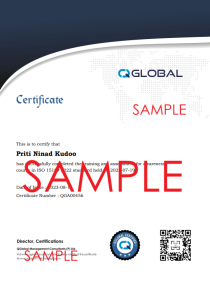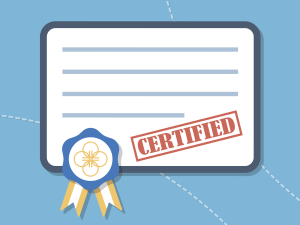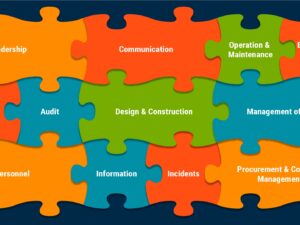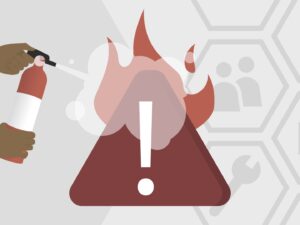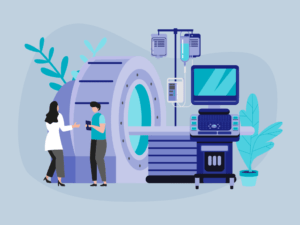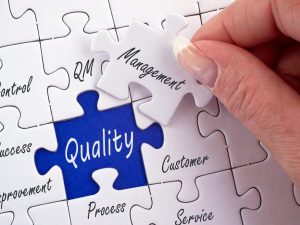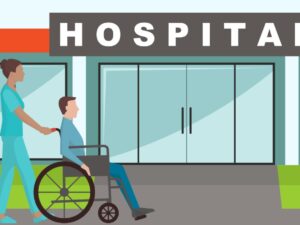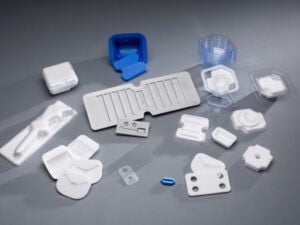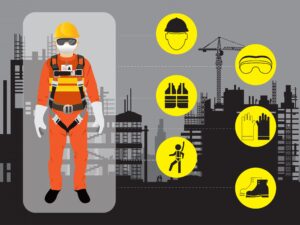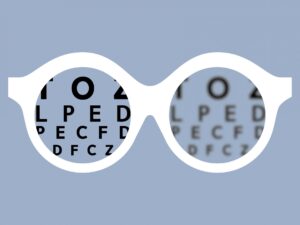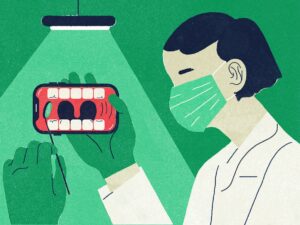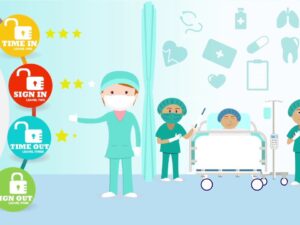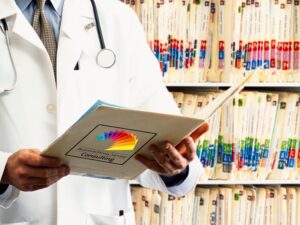Effective Communication in Hospitals - Awareness Course
- Description
- Curriculum

Better communication methods in a hospital would benefit both patients and health care provider. Effective communication — both intra hospital and inter hospital — is important for health care providers to protect their patients, save on costs, and increase day-to-day operating efficiency. Meanwhile, patients benefit from increased access to their medical histories, which reduce chances of medical errors. This course provides in detail awareness on hospital communication.
Who Should Attend?
- Any one working in healthcare facilities
- Doctors and nurses
- Quality managers and technical managers in healthcare facilities
- Quality & regulatory professionals
- Complaint handling personnel in healthcare facilities
Key Benefits
- Learn about inter hospital and intra hospital communication requirements
- Understand the methods to ensure confidentiality, integrity and availability of information handled
- Learn about the common communication lapses in hospitals and its impact
- Understand the requirements and methods of communicating to regulatory bodies
- Learn to develop effective Standard Operating Procedures (SOPs) for proper communication
- Understand the communication requirements during various processes such as registration, admission, transfer, procedure, discharge and billing
- Learn to assign roles and responsibilities for ensuring proper communication
- Learn the documentation and record keeping practices
- Develop employee training plan
- Learn the inspection and verification techniques to ensure the communication practices are correctly followed
- Learn to identify and mitigate risks associated in communication failures
- Learn to prepare communication matrix including the what, when, how, why and who matrices or communication
- Develop techniques to overcome barriers to communication such as culture, language, literacy etc
- Learn to develop a system to report communication errors, conduct root cause analysis and take corrective actions to prevent it from happening again
Learning & Evaluation Method
This is a live and interactive course. Once you purchase the course, our team will contact you to plan the training. No matter where you are located, we schedule the classes based on your convenience and time zone. You can plan to attend the training in sessions of 4 or 8 hr duration, based on how much time you can spend in a day.
Certification
There are increasing numbers of organizations, who prefer candidates those who have certain certifications from recognized programs. Certification demonstrates your commitment to superior professionalism, upholding industry standards, and continued learning. These merits can help boost your professional credibility and prestige within your own network, in your organisation, with your current clients, and when pursuing new business opportunities. After the successful completion of the course and final exam, you will be awarded with a certificate of completion issued by QGlobal. Your credentials will be made available in the global online directory and can be verified by anyone searching with the certificate number. Without doubt we can say that our training courses are well recognized and sought after by organizations across various geographies.
Buy for group Are you planning to buy this course for a group? We have the best prices for you! Select ‘Buy for Group’ option and add to the cart. You will get a discount of 60 – 75% for a group of up to 10 participants. To make a group purchase, create your group name and add individual emails of up to 10 participants. Each participant will get the access to the course materials, exam and the certificate. We will arrange one live-online session for the entire group.
Total: 206 Courses View all
Total: 206 Courses View all
-
1Introduction to communications in healthcare
-
2HEC02 Risk management
-
3Defining roles and responsibilities
-
4Creating documents and records
-
5HEC03 Training and awareness
-
6Communication requirements
-
7Communication during patient transfer
-
8Communication during medication
-
9Communication during healthcare emergencies
-
10Communication during surgery
-
11Communication during discharge
-
12Communication regarding infection control
-
13Communication regarding patient rights and responsibilities
-
14Communication regarding medico legal cases
-
15Critical value reporting
-
16Breaking the bad news
-
17Communication in high care areas
-
18Communication with suppliers
-
19Communication regarding employee grievance
-
20Communicating complaints
-
21Best communication practices
-
22Inspection and verification
-
23Performance monitoring and improvement
-
24Handling non conformities

